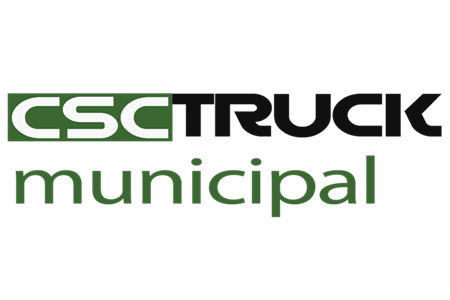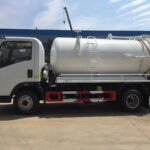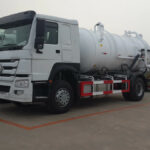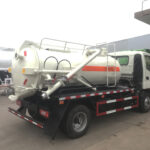Sewage management is a crucial aspect of maintaining clean and healthy communities. One of the essential tools in this process is the sewage truck. These specialized vehicles play a vital role in collecting, transporting, and treating wastewater and sewage materials. They come in various types, each designed for specific purposes and conditions. In this article, we will explore the different types of sewage trucks and their uses.
- Vacuum Trucks: Vacuum trucks, also known as vacuum tankers or suction trucks, are the most common type of sewage truck. They are equipped with a large vacuum system and storage tank. The vacuum system uses suction to collect liquid and solid waste from septic tanks, cesspools, and sewer lines. These trucks are particularly useful in residential areas and remote locations where sewer connections may be unavailable. Vacuum trucks can transport the collected waste to treatment facilities or disposal sites for proper processing.
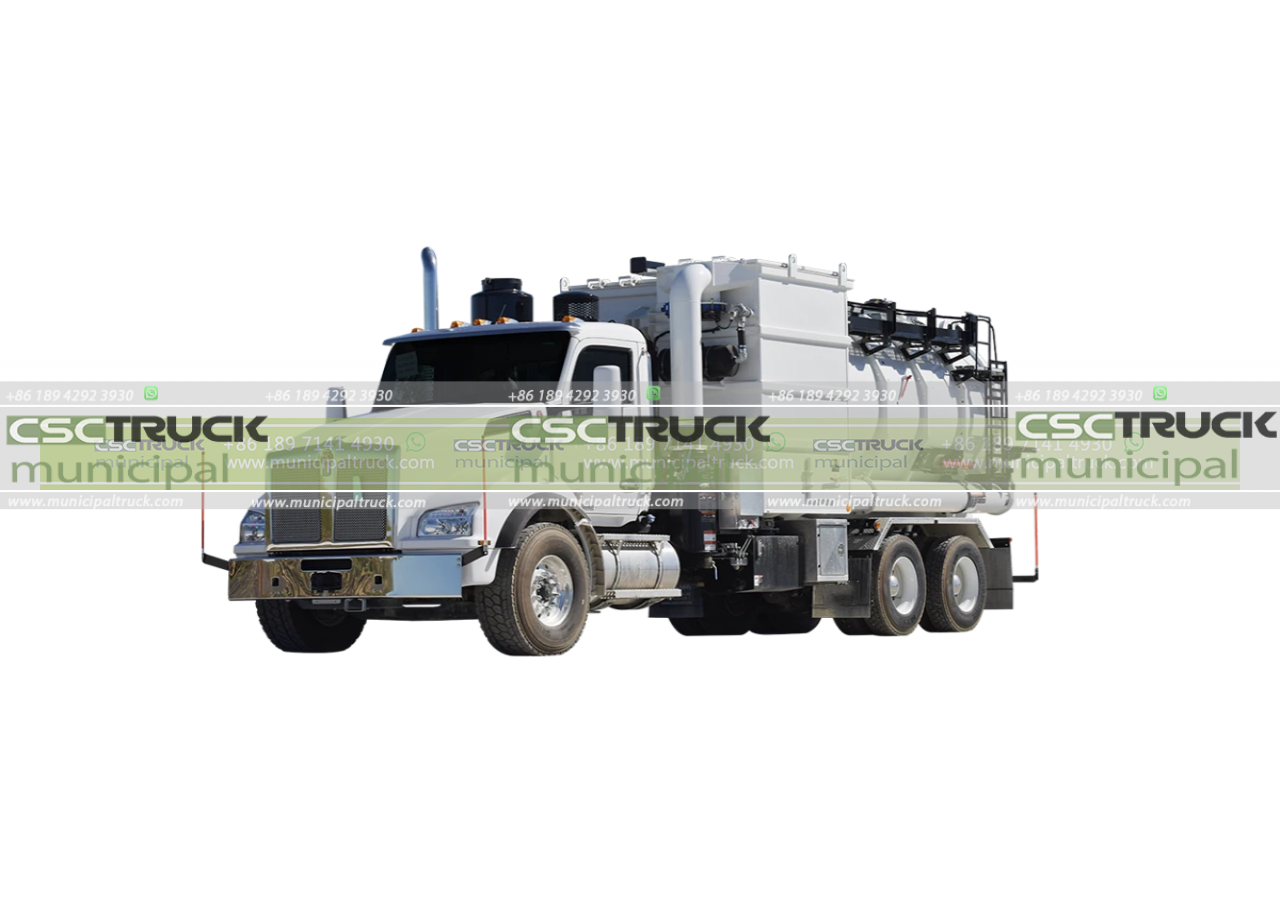
- Combination Trucks: Combination trucks, as the name suggests, combine the features of a vacuum truck and a jetting truck. These versatile vehicles are equipped with both a high-pressure water jetting system and a vacuum system. Combination trucks are commonly used in urban areas where sewer lines may be prone to blockages. The high-pressure water jetting system can clear obstructions, such as debris and tree roots, from the sewer lines, while the vacuum system collects the dislodged material. This dual functionality makes combination trucks highly efficient in maintaining the smooth flow of wastewater.
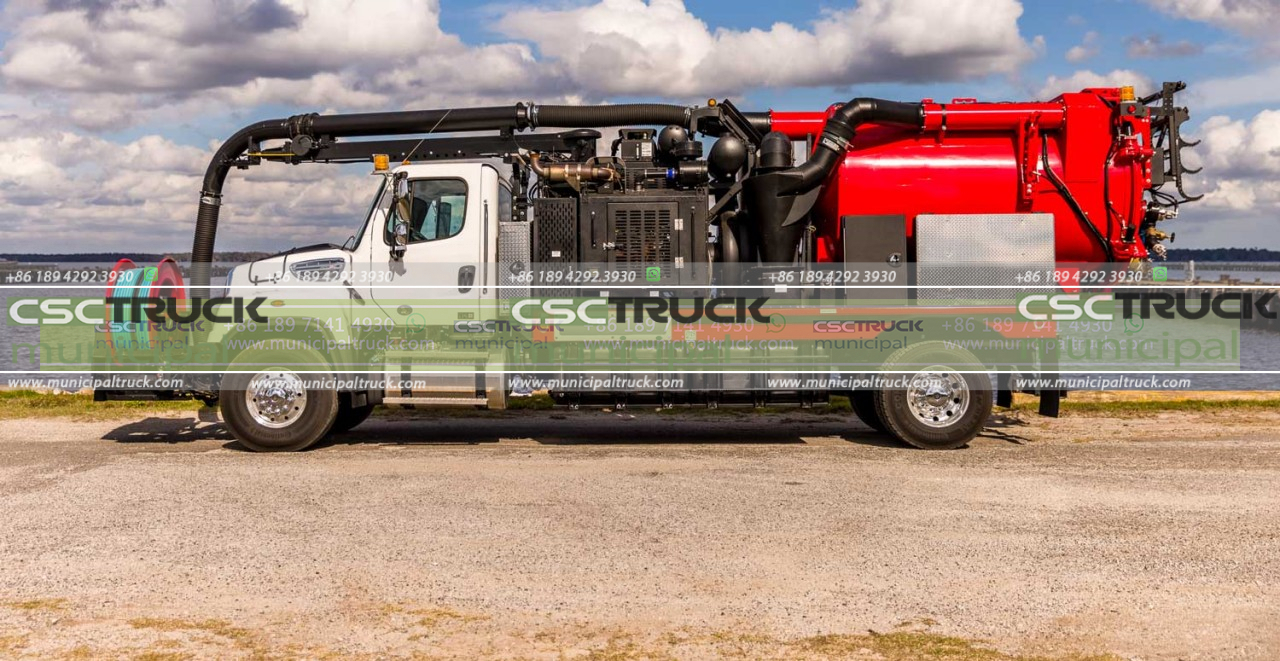
- Hydro-Excavation Trucks: Hydro-excavation trucks, also known as hydro vacs, are primarily used for digging and excavating around buried utility lines, such as sewer pipes. They utilize a combination of high-pressure water and vacuum systems to safely expose underground infrastructure without causing damage. The high-pressure water jet cuts through the soil, while the vacuum system simultaneously extracts the slurry into a storage tank. Hydro-excavation trucks are valuable in sewer line repairs and maintenance, as they minimize the risk of accidental damage to underground utilities.
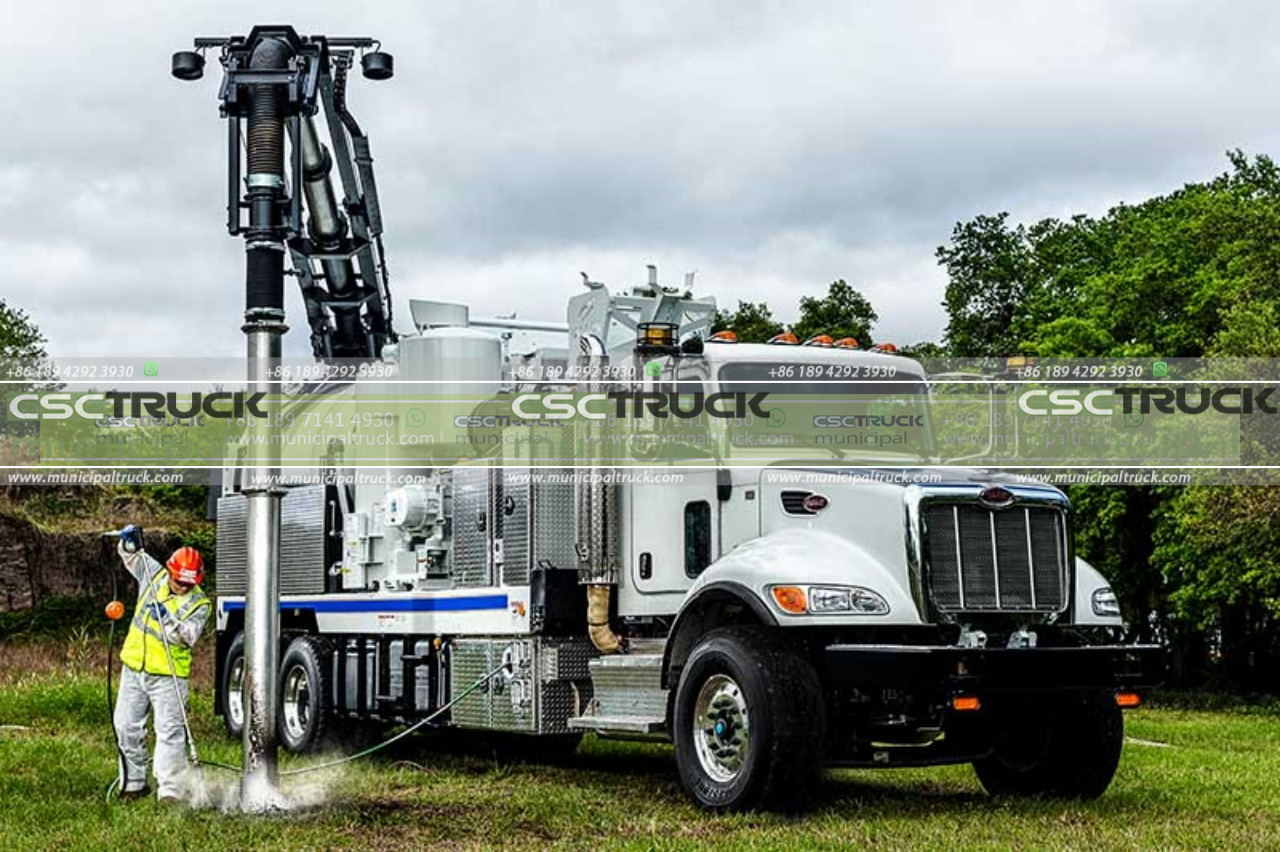
- Sludge Trucks: Sludge trucks, also called sludge tankers, are specifically designed to handle thick and viscous sludge materials. Sludge is the residual material left after the wastewater treatment process. Sludge Trucks are equipped with powerful pumps capable of handling heavy sludge and transferring it to treatment facilities or disposal sites. Sludge trucks are commonly used in municipal wastewater treatment plants, industrial facilities, and construction sites where large quantities of sludge need to be transported.
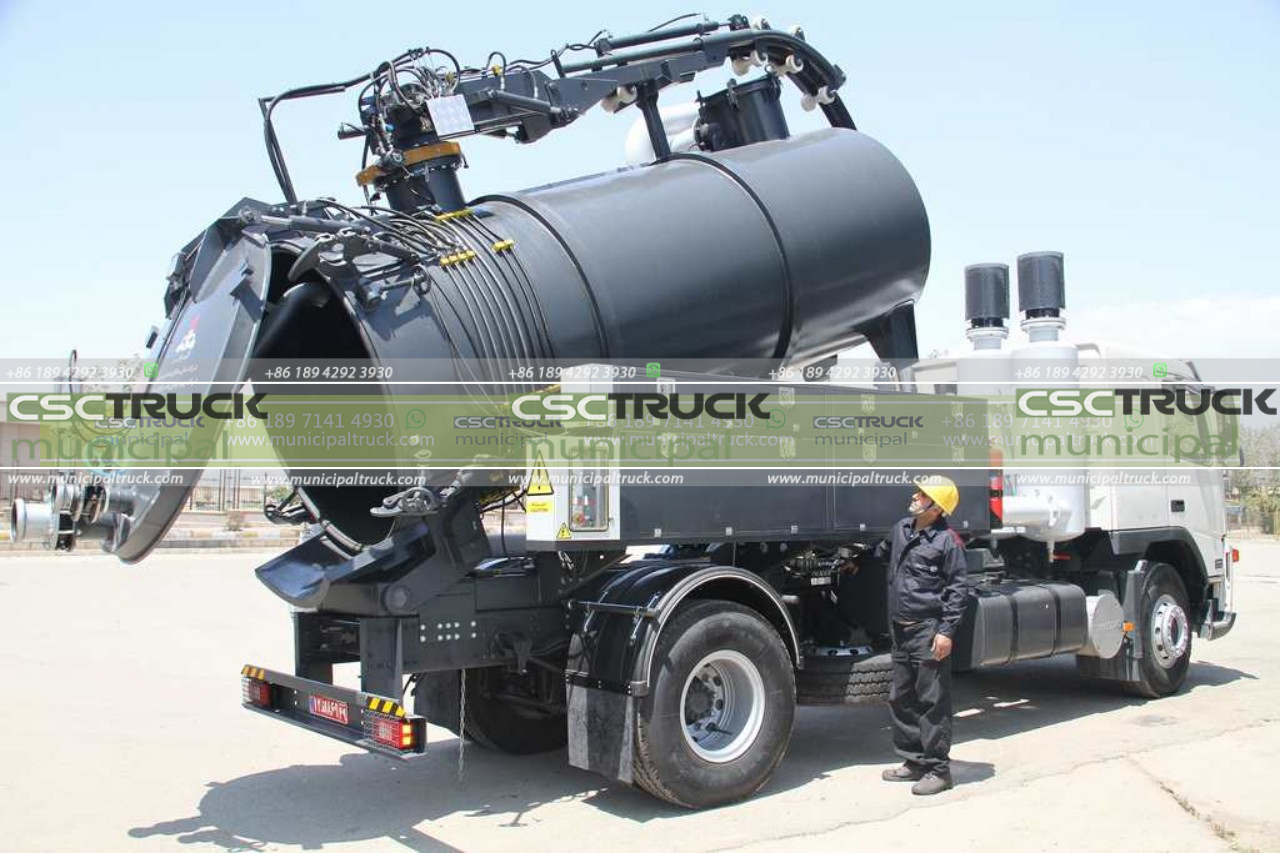
- Sewer Jetting Trucks: Sewer jetting trucks, also known as jet vac trucks or jet rodders, are primarily used for cleaning and maintaining sewer lines. They are equipped with high-pressure water jetting systems capable of delivering a strong stream of water into the sewer pipes. The high-pressure water effectively removes debris, grease, and other obstructions, ensuring the proper functioning of the sewer system. The vacuum system on these trucks collects the dislodged material, preventing it from re-entering the sewer lines. Sewer jetting trucks are essential in preventing blockages and maintaining the overall health of the sewer infrastructure.
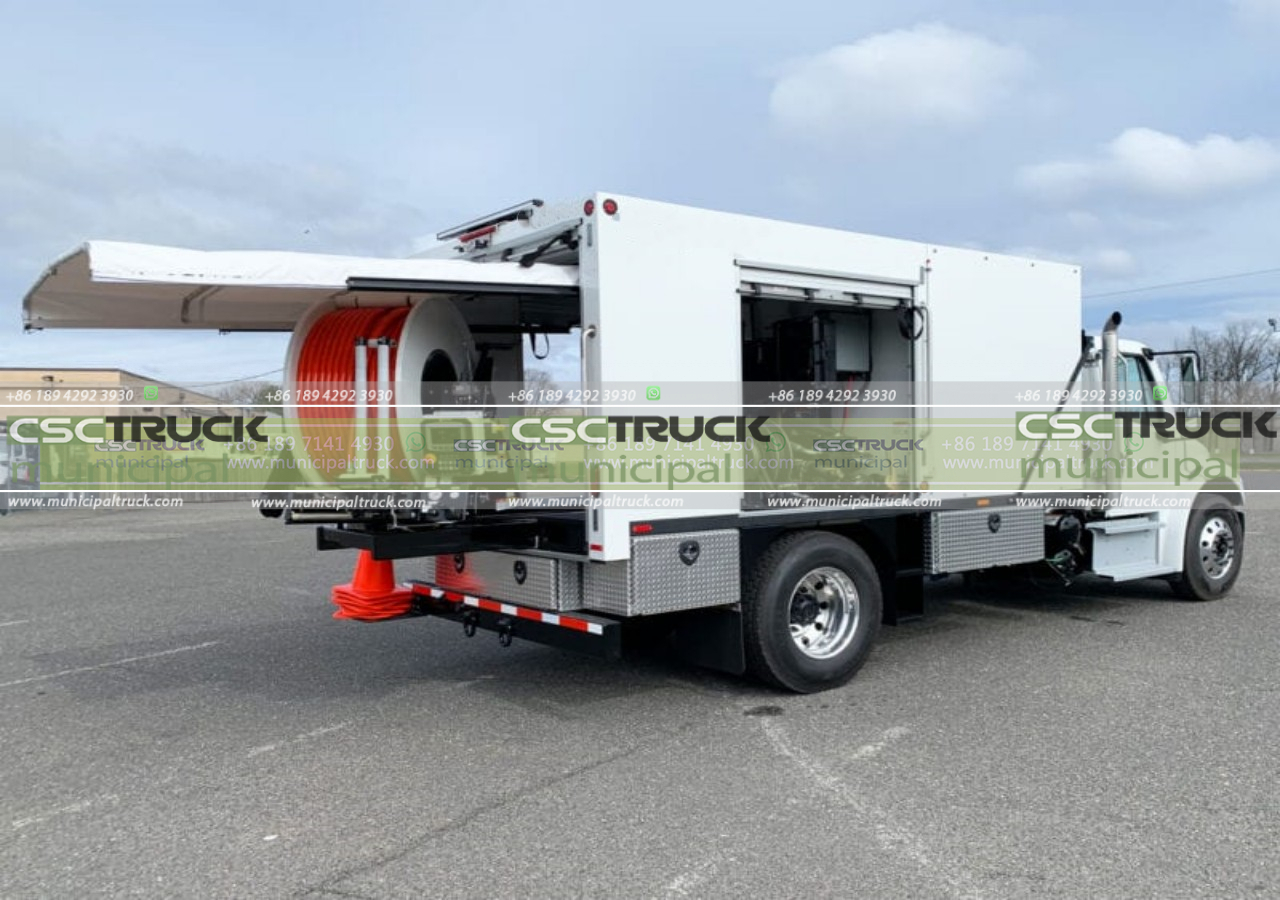 In conclusion, sewage trucks are indispensable in the management of wastewater and sewage materials. From vacuum trucks to combination trucks, hydro-excavation trucks to sludge trucks, and sewer jetting trucks, each type serves a specific purpose in ensuring the efficient collection, transportation, and treatment of sewage. Understanding the different types of sewage trucks and their uses is crucial for municipalities, wastewater treatment plants, and other entities involved in sewage management. By employing the right type of truck for the job, we can maintain clean and healthy communities while protecting the environment.
In conclusion, sewage trucks are indispensable in the management of wastewater and sewage materials. From vacuum trucks to combination trucks, hydro-excavation trucks to sludge trucks, and sewer jetting trucks, each type serves a specific purpose in ensuring the efficient collection, transportation, and treatment of sewage. Understanding the different types of sewage trucks and their uses is crucial for municipalities, wastewater treatment plants, and other entities involved in sewage management. By employing the right type of truck for the job, we can maintain clean and healthy communities while protecting the environment.
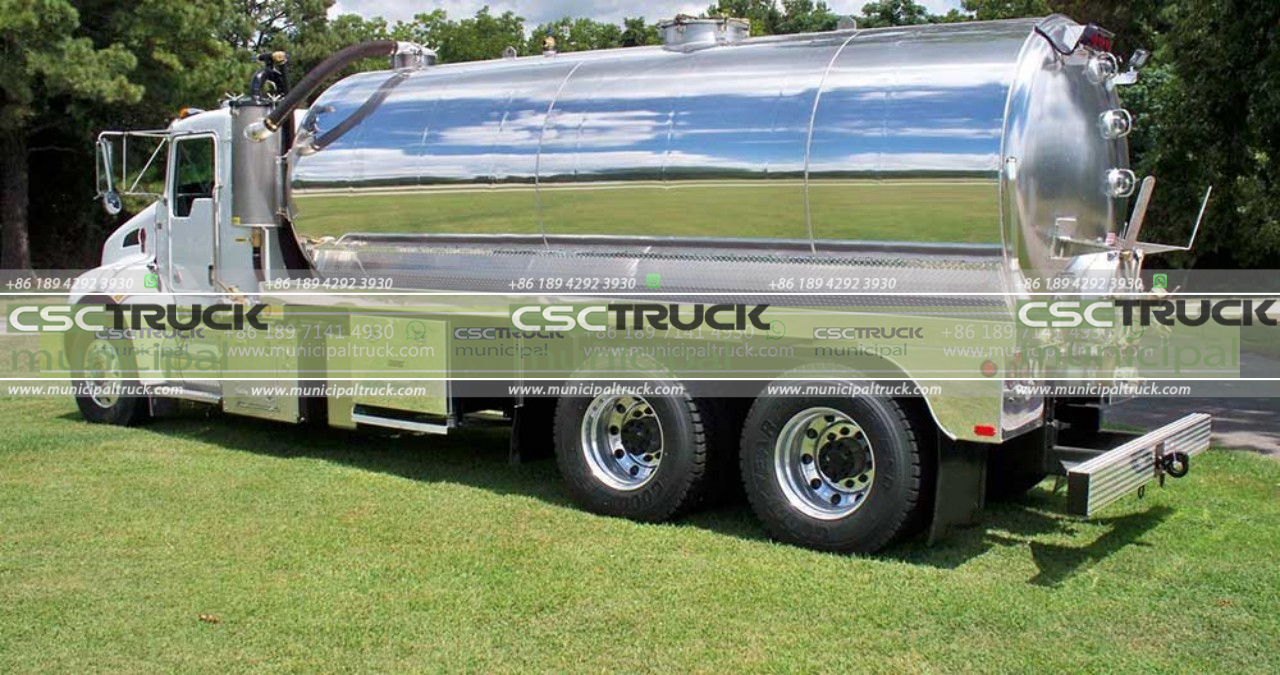 Furthermore, the advancements in technology have led to the development of more efficient and environmentally friendly sewage trucks. Many modern sewage trucks are equipped with advanced filtration systems to separate liquids from solids, reducing the overall volume of waste to be transported. This not only increases the truck’s capacity but also minimizes the number of trips required, resulting in cost savings and reduced carbon emissions.
Furthermore, the advancements in technology have led to the development of more efficient and environmentally friendly sewage trucks. Many modern sewage trucks are equipped with advanced filtration systems to separate liquids from solids, reducing the overall volume of waste to be transported. This not only increases the truck’s capacity but also minimizes the number of trips required, resulting in cost savings and reduced carbon emissions.
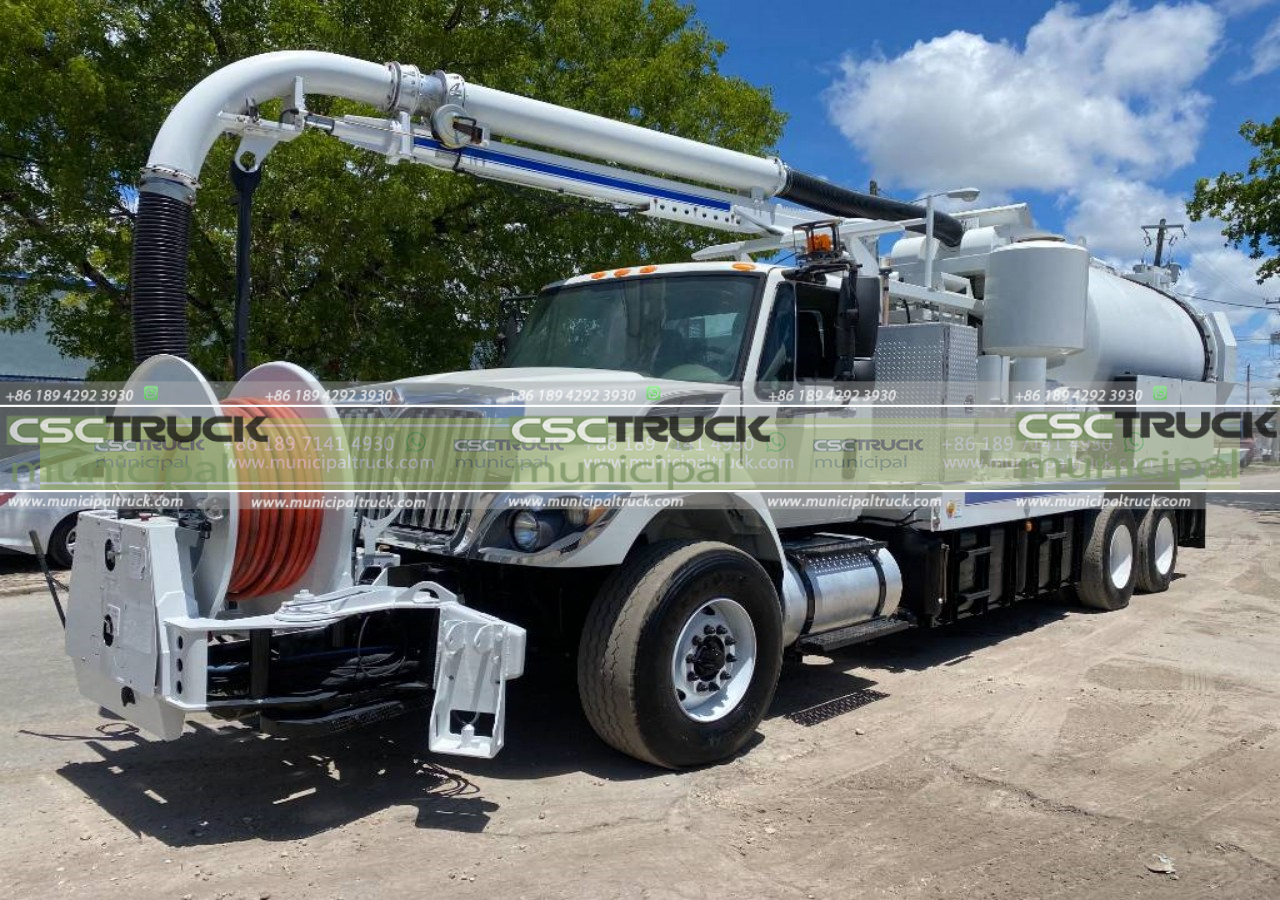 Moreover, some sewage trucks are now equipped with telematics and GPS systems, allowing for real-time monitoring and tracking of their operations. This enables better route optimization, efficient scheduling, and improved response times to emergencies. The data collected through these systems can also provide valuable insights for optimizing maintenance schedules and identifying areas that require infrastructure improvements.
Moreover, some sewage trucks are now equipped with telematics and GPS systems, allowing for real-time monitoring and tracking of their operations. This enables better route optimization, efficient scheduling, and improved response times to emergencies. The data collected through these systems can also provide valuable insights for optimizing maintenance schedules and identifying areas that require infrastructure improvements.
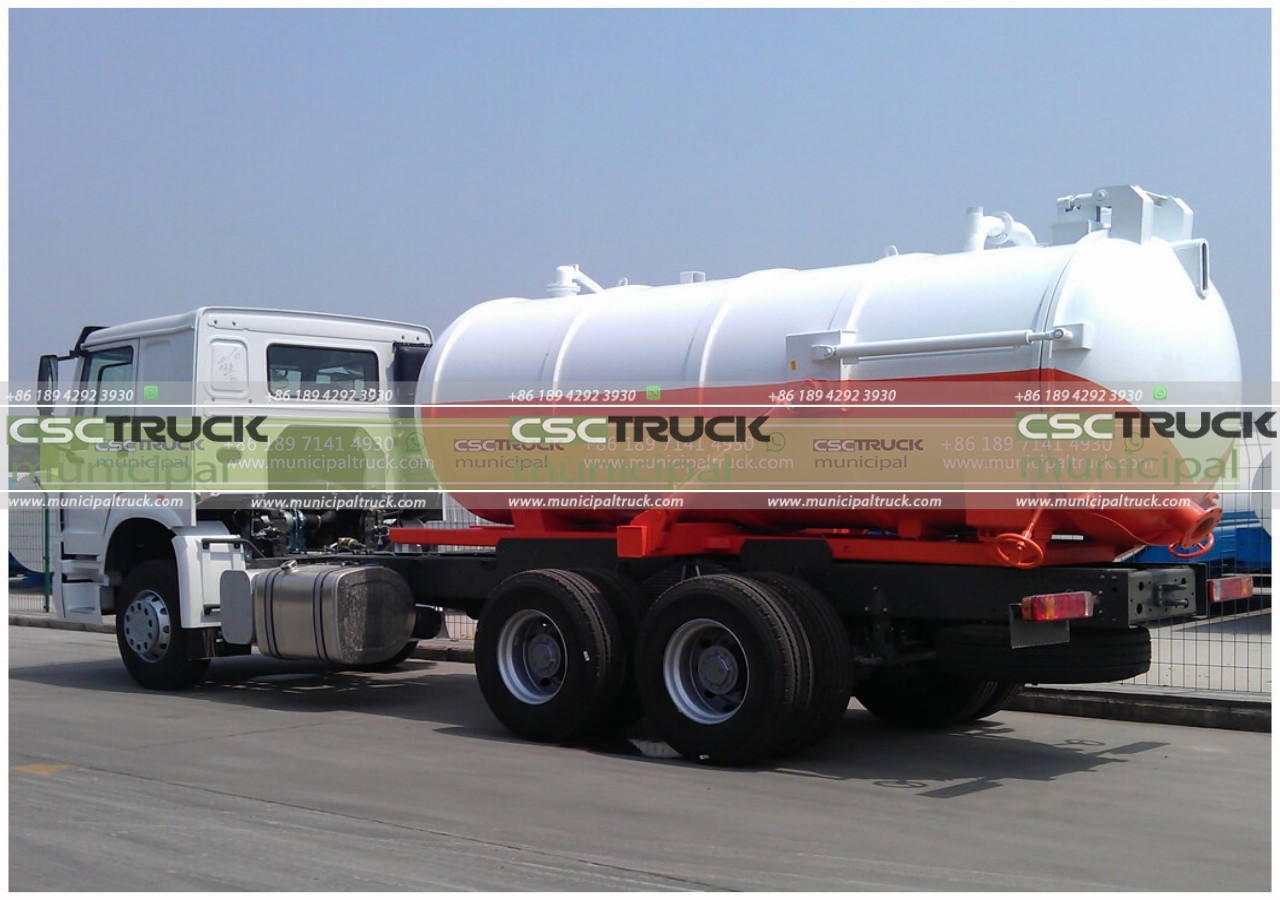 In addition to their primary functions, sewage trucks also play a significant role in environmental protection. They are responsible for the proper disposal of wastewater and sewage materials, ensuring that they are treated by environmental regulations. By transporting the waste to treatment facilities equipped with advanced filtration and purification systems, sewage trucks help to remove pollutants and harmful substances before the treated water is released back into the environment.
In addition to their primary functions, sewage trucks also play a significant role in environmental protection. They are responsible for the proper disposal of wastewater and sewage materials, ensuring that they are treated by environmental regulations. By transporting the waste to treatment facilities equipped with advanced filtration and purification systems, sewage trucks help to remove pollutants and harmful substances before the treated water is released back into the environment.
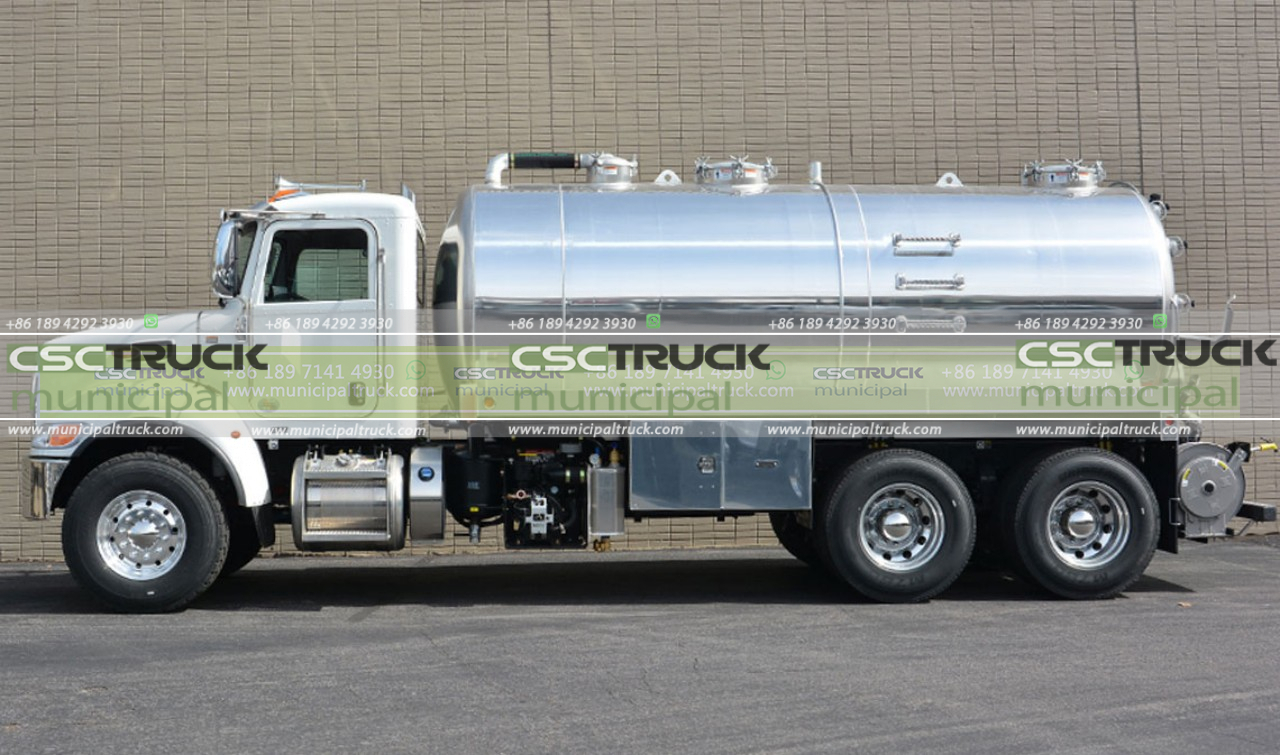 It’s worth mentioning that the operation of sewage trucks requires skilled and trained professionals. These individuals undergo specialized training to operate the equipment safely and efficiently. They are knowledgeable about the regulations and protocols surrounding sewage management and follow strict guidelines to ensure proper handling and disposal of waste materials.
It’s worth mentioning that the operation of sewage trucks requires skilled and trained professionals. These individuals undergo specialized training to operate the equipment safely and efficiently. They are knowledgeable about the regulations and protocols surrounding sewage management and follow strict guidelines to ensure proper handling and disposal of waste materials.
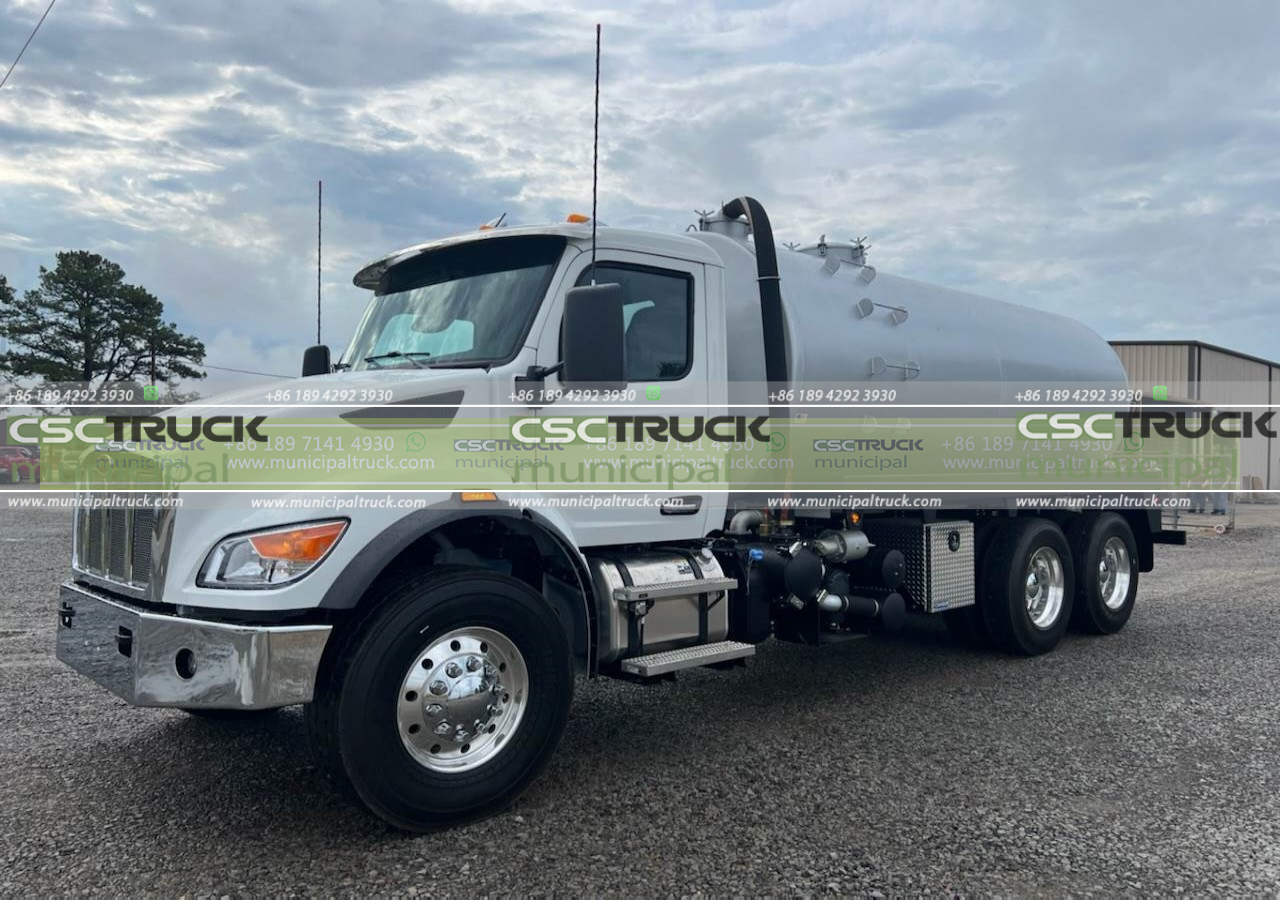 While sewage trucks are essential in maintaining the integrity of sewage systems and protecting public health, it’s important to note that they are not a solution on their own. Proper maintenance of sewer infrastructure, regular inspections, and public awareness about the responsible use of sewage systems are equally crucial. The combination of these factors ensures the long-term functionality and sustainability of wastewater management practices.
While sewage trucks are essential in maintaining the integrity of sewage systems and protecting public health, it’s important to note that they are not a solution on their own. Proper maintenance of sewer infrastructure, regular inspections, and public awareness about the responsible use of sewage systems are equally crucial. The combination of these factors ensures the long-term functionality and sustainability of wastewater management practices.
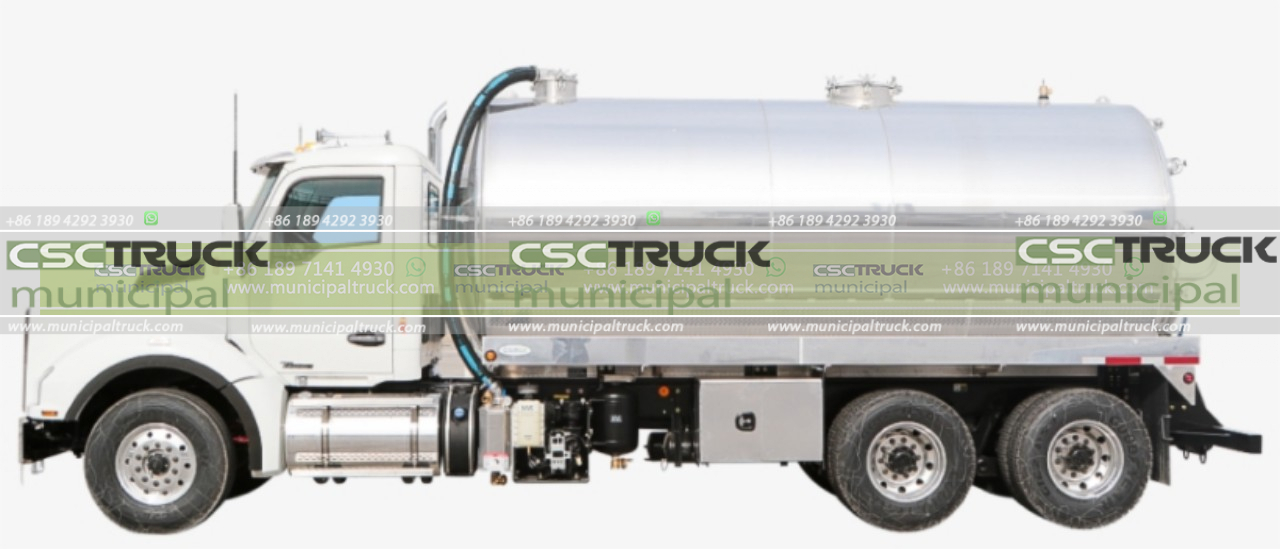 As a conclusion, sewage trucks are versatile and specialized vehicles that serve a vital role in the collection, transportation, and treatment of wastewater and sewage materials. From vacuum trucks to combination trucks, hydro-excavation trucks to sludge trucks, and sewer jetting trucks, each type has its specific uses and advantages. By utilizing the appropriate type of sewage truck for each task, we can optimize efficiency, protect the environment, and maintain clean and healthy communities. The continued advancements in technology and the commitment to responsible sewage management practices will further enhance the capabilities and effectiveness of these indispensable vehicles.
As a conclusion, sewage trucks are versatile and specialized vehicles that serve a vital role in the collection, transportation, and treatment of wastewater and sewage materials. From vacuum trucks to combination trucks, hydro-excavation trucks to sludge trucks, and sewer jetting trucks, each type has its specific uses and advantages. By utilizing the appropriate type of sewage truck for each task, we can optimize efficiency, protect the environment, and maintain clean and healthy communities. The continued advancements in technology and the commitment to responsible sewage management practices will further enhance the capabilities and effectiveness of these indispensable vehicles.
Contact us for this municipal truck or similar trucks: [email protected] Call us or What's APP us: +86 189 4292 3930
